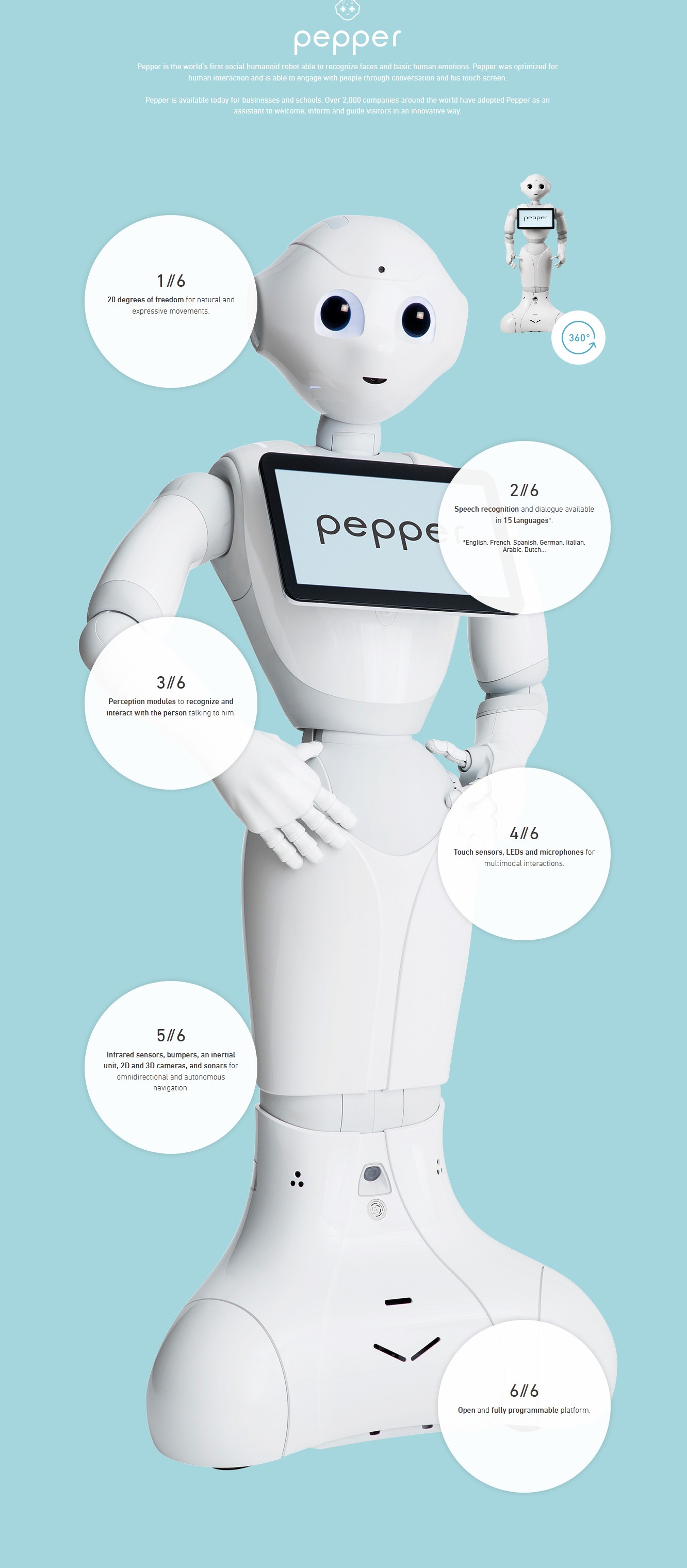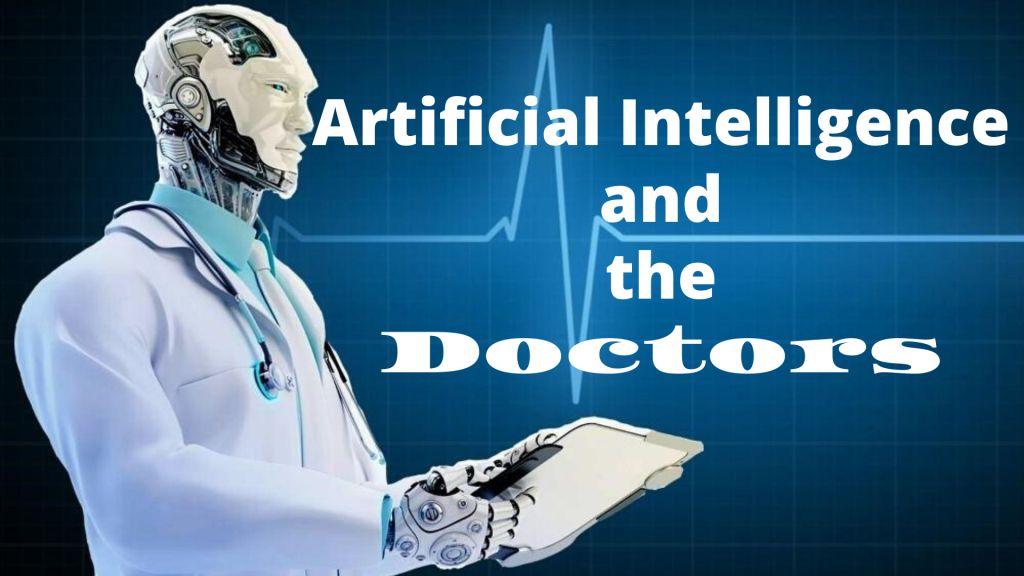Artificial Intelligence in Medicine: is AI capable of replacing Doctors?
 |
| AI in Medicine |
Doctors are now been faced with rising threat-Artificial
intelligence (AI) in the field of medicine.
Artificial Intelligence has already increase diagnosis
speed, accuracy, reduce patients waiting time and stress, will this ultimately lead
to AI replacing doctors?
AI is threatening to put doctors out of their livelihood by the
fast diagnosis of patient and disease.
What if you walk into the hospital today, instead of seeing a
doctor, the medicine man is an AI?
The evolution of AI-assisted diagnosis has proven to be on par with
the doctors’ skills of diagnosis.
Although artificial intelligence diagnosis is something that can
be gotten from medical journals from around the world, AI can access these data
and used it more efficiently than humans can.
Medical artificial intelligence has shown the potential of
innovating healthcare through early disease detection, accessing medical
records faster and making a good diagnosis.
These are all made possible by;
The automation and digitalization of almost every industry and
human endeavours. Many fear that robots, AI and general automation may lead to
their loss of jobs.
In as much as the above statement is debatable, it can’t be
ruled out as mere speculation in a technological advance world.
I can’t say that I understand why one of the pillars of education-medicine should be run by quite a thought and I have a pretty solid idea of the future.
The future may not be as blurry as we may have thought of it to be because AI and Doctors are inseparable for now.
In this era of advance technology, a time will come that machines would be used for almost all things.
Although the fear of robots replacing doctors does elude me, it is still understandable and arguable.
Doctors are no match for artificial intelligence when
it comes to diagnosis, collection and analysis of patient data.
Should then our lives be left in the
hands of a machine?
See; Artificial Intelligence. What is it Exactly?
That’s why it is easier to say AI can replace a pathologist
but not as replacing the embodiment of a surgeon.
To have a debate as to why robots cannot replace doctors
may be as controversial as to finding a needle in a haystack.
In one way or another, artificial intelligence and robotics
are evolving-medicine, pharmacy, architecture, transportation, surveillance.
it is just a matter of time before artificial
intelligence applications take complete control of the healthcare
sector.
Some uses of Artificial Intelligence
in Medicine
We shall be focusing our discussion
on only medicine in this blog post!
Artificial Intelligence (AI) Aided
Surgery
At some point, having medical records
of a patient online gives easy access to information, but does not make justice
for the applications of AI in healthcare.
Some applications of artificial
intelligence in surgery is fascinating.
AI-Robot will guide and direct the
surgeon during the whole process of the surgery.
See Clinical applications of artificial intelligence in surgery and neurosurgery.
After reading the overview, I was
interested in “high-resolution diagnostics modalities”
This has promptly opened new ways in
which artificial intelligence can be effectively and efficiently used in
medicine.
Thus when artificial intelligence is
used in medicine, it opens a new frontier to medical engineering and brings
about new medical kits.
Artificial Intelligence as a Virtual
Nurse
Therefore artificial intelligence in
medicine is bringing a change, a transformation, a different approach towards how
we understand, view and interpret medicine.
As doctors are been confronted with
artificial intelligence applications in medicine, nurses are also in the same
shoes.
At such, human doctors may become inconsequential
in the not so distant future (This
statement only holds in speculation.)
Bluntly speaking;
Medical artificial intelligence primarily concerned itself with
AI programs that can perform diagnosis, simulate treatment, and make therapy
recommendations based on available data.
If it can perform all these, why need
medical practitioners?
Significant changes in medicine have
taken place over the years because of artificial intelligence.
AI is already in use by the following
examples
Is the eight generation design of a robot
that can administer animal therapy to patients in an environment such as
hospitals.
When we have robots as therapeutic
animals in hospitals, then without considering Pepper, we are not doing
justice.
Paro is doing the job of a nurse by
giving emotional support to individuals that are in need.
That’s a complete solution to opening
new dimensions of how robots and AI can be utilized in the hospital
 |
| Pepper |
This semi-humanoid robot was manufactured by SoftBank as a social robot.
It first 1,000 units was sold out for
$1650 against its slated date of December 2015 on June 2015 in less than 60
seconds.
Amazing isn’t?
The British Broadcasting Corporation
also
reported that the humanoid robot is programmed to understand
human emotions.
This means sooner than later, it
could take receptionist job in Belgian hospitals
What both Paro and Pepper have in common.
They are both artificial intelligence-powered
robots that can take care of humans and appeal to them in so many ways.
This has proven once again about the
potential of the applications of artificial intelligence in medicine.
With such development, it is but a
matter of time before artificial intelligence in medicine becomes generally
accepted.
The power held by artificial
intelligence in its application in healthcare and real-world is diversified.
Some of the branches of medicine
already thinking of going extinct.
Medical branches like medical radiology and pathology are now envisioned as an endangered
profession that needs to be protected from oblivion
AI’s power of identifying pattern and
abnormalities has offered a glimpse into the future as Google AI out performs radiologist in
detecting lungs cancers.
Detecting is just a single point in a constellation of relationships, conversations, decisions, and actions involved in taking care of a patient to improve health.
Thus, we must fully understand
and integrate the AI-nurse fully before it can be applied in hospitals and
other places of need.
The Doctors’ smile, pleasant
reassurance and confidence-building advice, primes our systems of belief. And
these can initiate self-healing before the administration of any drug(s).
I don’t see any AI system doing this symphony in reassuring the patient chances of healing before and after diagnosis; rather artificial intelligence can just get the symptoms to decide what the solution would be.
Let me share with you what the future
holds for artificial
intelligence in medicine and why AI may not replace Doctor
“AI in healthcare is
the use of complex algorithms and software to emulate human cognition in the
analysis of complicated medical data. Specifically, AI is the ability for a
computer algorithm to approximate conclusions without direct human input”
Credited to en.wikipedia.org
What AI in Medicine is all about?
Artificial intelligence spanning several industries is eccentric
and proof of its versatility.
Arguing about its use, impact and the revolution it is bringing
to healthcare service is undeniable.
However, the presumptions believe of AI resulting in a dystopian future with anthropomorphic sentient robots may be a reality from the science-fiction standpoint.
AI in medicine is developed with the sole purpose of reducing
margin error, analyze relationships between prevention/treatment & its
protocol.
A glimpse into the potential that Artificial Intelligence has
shown that when it is applied in medicine, it has taken care of man-hours of
research.
And make no mistake, the diagnosis, drug development, patient
monitoring and personalized medicine is influenced by the AI in medicine.
This is because AI application in medicine has the tantalizing power
of identifying patterns, anomalies that normally are over-looked by Doctors.
Therefore, artificial
intelligence in medicine is all about helping the Doctors and Nurses to
significantly improve the healthcare delivery system faster, effective and efficient.
In addition, AI in medicine can help business operations
by decreasing patient boarding, self-medicating and access to quality
healthcare irrespective of class and schedules of work.
AI and the Doctors
 |
| AI in Medicine |
The future of Artificial Intelligence (AI) in medicine is a physician-patient
and machines triangle.
AI-patient-Doctors will rely on one another, learning from one
another and also growing together.
This begs the questions; what is the relationship between
artificial intelligence and the Doctors? Seriously, is a tough question to
answer.
Pediatric AI has already
outperformed junior Doctors .
This news, however, does not come as a shocker in the medical line.
Google Health and the Imperial College London designed, trained
and test the computer that was able to outperform six radiologists.
Thus far, AI has outranked these doctors and posses the
question; will AI take over from Humans?
And the introduction of Artificial Intelligence
technology in the medical field enables doctors to improve
the accuracy of diagnosing diseases through AI deep learning.
Doctors may find it odd since
AI-based health care technologies are developed and deployed surprisingly to
encourage efficiency in medicine.
These give patients optimal treatments and recommendations and
greatly improve the existing medical system by solving the problem of
insufficient medical manpower and the rising task labour on medical
practitioners.
It is evident that sick people will look for a fast and reliable solution and AI medical assistants are looking for more and more data.
Doctor’s will need to be able to scrutinize the decisions of deep learning AI with their knowledge to give effective and efficient treatment.
Therefore, AI learns by combining massive amounts of data, insurance claims and medical research to identify new patterns and disease. Artificial Intelligence can be used to remake healthcare, reduce medical errors and create a repository of medical knowledge that can always be consulted.
Doctors, on the other hand, make
research and rely on human cognitive abilities to continue in their practice as
medical practitioners.
On A Final Note
AI can improve accuracy by learning and analyzing massive data
and becomes smarter by itself, but artificial intelligence is not almighty.
Like a robot, artificial intelligence keeps learning how to
solve problems relating to human disease, but it still needs to learn what is
called humour, and other human touches that can aid the patient to start mental
healing before the administration of drugs.
It is too soon to deduce and make certain a conclusive argument that AI can and is replacing Doctors in the field of medicine.
But it can’t
also be ruled out that AI is used extensively in the treatment of the sick.



Comments
Post a Comment